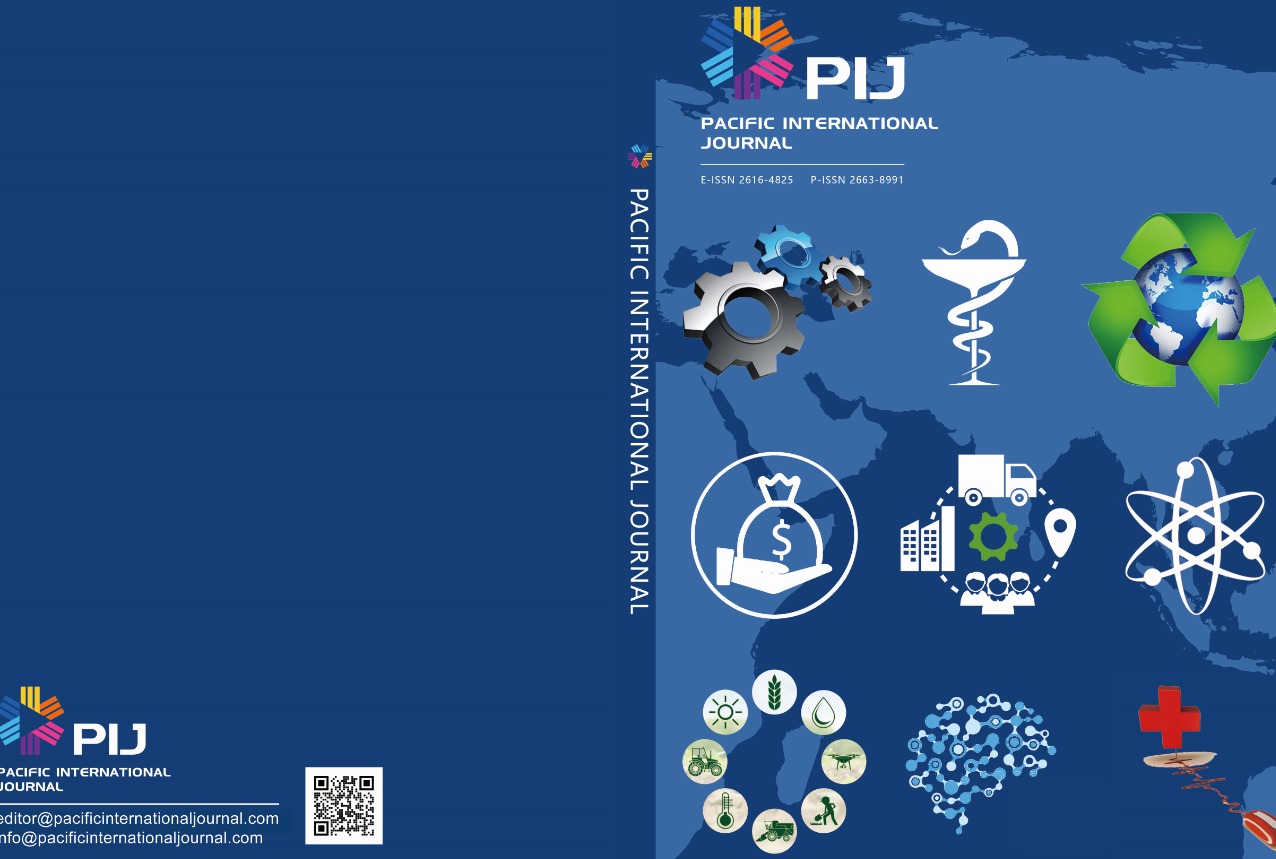
首页 - 工作动态
工作动态/ NEWSPakistan Research Center of Inner Mongolia Honder Colleg of Arts and Sciences is now collaborating with PIJ on the academic studies and publishing of the journal. The following is the beife introducion of the Journal.
Official Website: https://pacificinternationaljournal.com/index.php/pij/index

Pacific International Journal "PIJ" (E-ISSN 2616-4825 & P-ISSN 2663-8991) is an international, nonprofit, open access, online, and double-blind peer-reviewed journal that has been published since 2018. This journal's main objective is to serve as an intellectual and scientific platform to develop and promote the multidisciplinary studies and research of the international scholars in the field described in more detail below. Pacific International Journal published the original research articles that identify, explain, and analyze real-world issues. It accepts full-length multidisciplinary research articles on a full range of topics. Pacific International journal is inviting submissions from authors according to the aims and scope of the journal. The PIJ is published in an open-access format – articles are published on the journal's website immediately after acceptance, giving the scientific community and the public unlimited and free access to the content.
Aims and Scope
Pacific International Journal “PIJ” is an international, nonprofit, open access, online, and double-blind peer-reviewed journal that has been published since 2018. The main objective of the Pacific International journal is to serve as an intellectual platform and ideas for the international scholar.
Life Sciences
Physical Sciences and Engineering
| Health sciences
Social Science and humanities
|
The journal's articles appear in a wide range of abstracting and indexing databases and are covered by numerous other services, as given in the full list below. The following link provides more information about PIJ's approach to making articles more discoverable.
International Standard Serial Number (ISSN)
Index Copernicus
Google scholar
DRJI
International Scientific Indexing
Cite Factor Academic Scientific Journals
Scientific Indexing Service
Academic resource Index Research Bib
Together We Reach The Goal
World Cat Library
OpenAire
Cnki
REVIEW PROCESS
All submissions to Pacific International Jouranal (PIJ) are subject to independent review.
We have adopted two methods of paper review –
We send the original, unpublished article for review by experts in the related field for the "double-blind" review process: authors are not told who reviewed their paper, and reviewers are not told who wrote the paper. The reviewers give their advice on publication opportunities, together with their observations to the editor in chief, which will transmit them to the authors. If the referents have contrary opinions, the editor in chief may ask the opinion of a third referent. Our editorial takes a decision after the review is complete. This review is adopted in the case of a scientific/ technical new research paper.
The Academic Editor performs an initial assessment before inviting a number of potential reviewers to provide a peer-review report. (The Academic Editor can reject a manuscript prior to review if not deemed suitable.) On the basis of the submitted reports the Academic Editor makes one of the following recommendations:
If the Academic Editor recommends “Reject,” the authors are sent any review reports that have been received and are notified that their manuscript will no longer be considered for publication in the journal.
If the Academic Editor recommends “Consider after Major Changes,” the authors are notified to prepare and submit an updated version of their manuscript with the necessary changes suggested by the reviewers. This might require new data to be collected or a substantial revision of the text. The manuscript is then reassessed by one or more of the original reviewers before the Academic Editor makes a new recommendation.
If the Academic Editor recommends “Consider after Minor Changes,” the authors are notified to prepare and submit a final copy of their manuscript with the required minor changes suggested by the reviewers. Once the Editor is satisfied with the final manuscript, optionally having sought further advice from one or more of the reviewers, the Academic Editor can recommend “Publish Unaltered”.
If the Academic Editor recommends “Publish Unaltered,” the manuscript will undergo a final check by the journal’s editorial office in order to ensure that the manuscript and its review process adhere to the journal’s guidelines and policies. Once done, the authors will be notified of the manuscript’s acceptance.
This technique of review same is above when the paper is of a literature review nature. The research works conducted by Ph.D. Scholars are assessed through this technique.
The objectives of the peer review process include:
Sources of Peer Reviewers
Reviewers are drawn from the journal’s editorial board and volunteer peer reviewer pool. Occasionally reviewers identified as being suitable through different sources will be approached.
Note: Recommendations from authors of peer reviewers from other institutions are accepted and the authors need to send us the name, affiliations, and official email id and contact no.